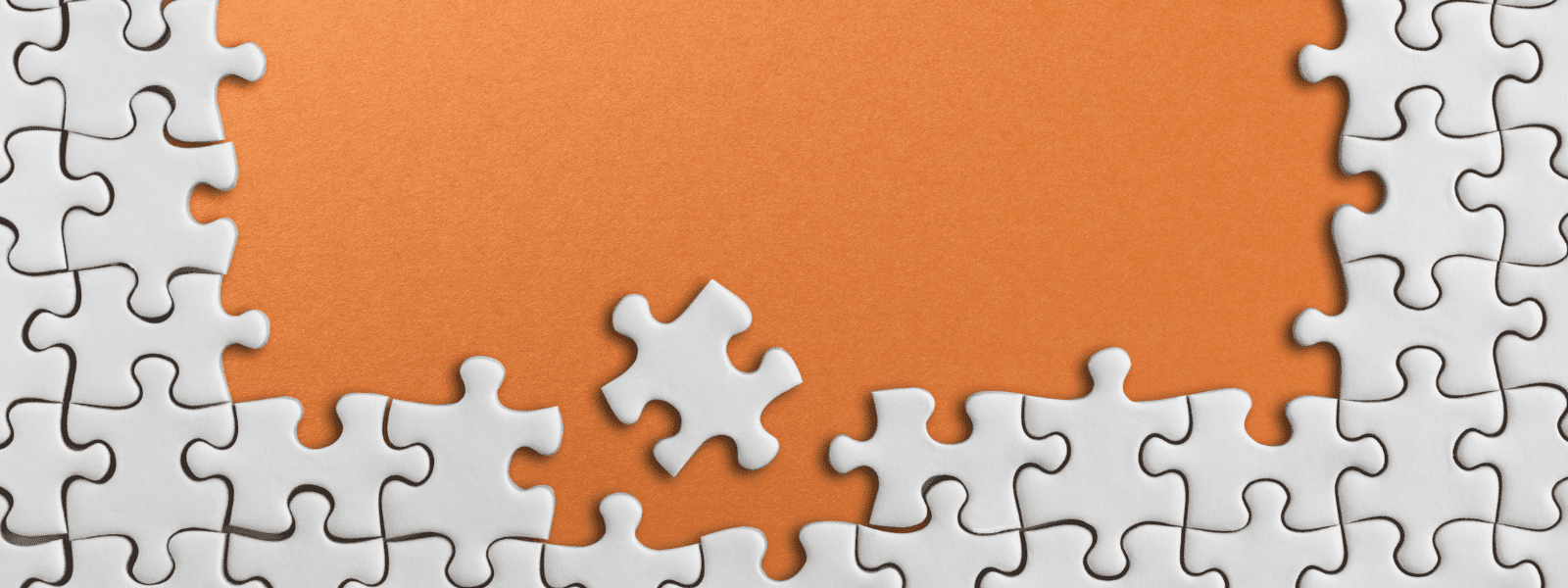5 Benefits of Jigsaw Puzzles for Your Brain
As the weather cools down and people are drawn inside, jigsaw puzzles are a great option to engage with your family and build some brain skills! Beyond being a calming, stress-relieving activity, here are 5 benefits of jigsaw puzzles for your brain:
Puzzles engage both the left and right sides of your brain for better problem-solving and attention span.
While each area of the brain has its own area of expertise, both sides have to work together to complete many cognitive tasks (including reading, following directions, and even remembering where you left your keys).
The ability to think analytically and creatively at the same time is extremely helpful for learners of all ages, and jigsaw puzzles do this naturally! They require you to visually process and come up with a plan while thinking creatively to envision the finished product.
Effective communication between areas of the brain can also help you stay on task longer and improve your attention span!
Puzzles improve visual-spatial awareness and processing.
Visual processing skills aren’t just something you use at your puzzling table. Driving, packing, cooking, reading, using a map, learning dance moves or sports plays, and more day-to-day tasks require strong visual-spatial awareness. Doing jigsaw puzzles is a great low-stress way to build these brain skills at home!
Jigsaw puzzles can be a touchpoint for family or social connections.
Quality social connections are critical for healthy cognition and thinking, especially as we get older. For senior adults, healthy social connections can reduce risk of developing dementia by 15%, according to research.
Jigsaw puzzling can be an activity that brings multiple generations together, or provides an activity for friends to do together to enhance relationships and the feeling of connection.
Puzzles build processing speed and short-term memory
These are more critical cognitive skills that are essential for many day-to-day tasks. Processing speed is your brain’s ability to keep up with the pace of the world around you, and short term memory (or working memory) determines what happens to information when you take it in.
Jigsaw puzzles help your brain learn how to problem-solve more quickly and hold onto images while using them. This skill can translate into real-life scenarios like remembering where you left something, staying focused throughout a task, and following multiple steps without needing as many reminders.
Jigsaw puzzles may enhance executive functioning skills
Executive functioning skills are a set of abilities that your brain uses to attack a problem and create solutions. This can include things like:
- Attention
- Task initiation
- Planning
- Flexibility
- Self-regulation
- And stress tolerance.
Each of these skills are critical pieces of successful thinking in all areas of life. Jigsaw puzzles are a great tool to build these skills in a way that is fun and rewarding, no matter your age!
Targeted Brain Training to Improve Your Thinking Skills
These benefits of jigsaw puzzles for your brain are a great place to start at home. However, if you notice that you or your child really struggle with them, it could be a sign that some other cognitive skill weaknesses are at play.
Targeted brain training can hone in on things like weak attention, processing speed, memory, visual processing, or logic in order to help your brain work more efficiently.







